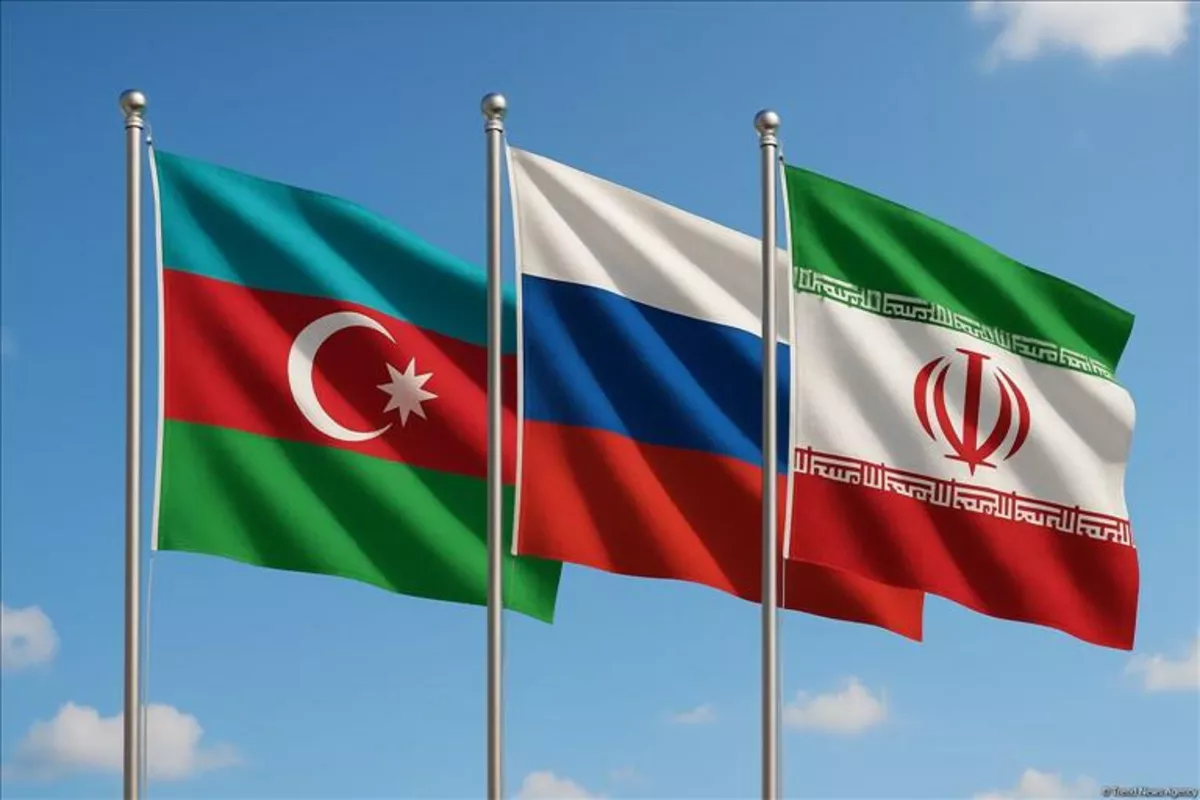
Photo credit: menafn.com
Iran’s Minister of Roads and Urban Development, Farzaneh Sadegh, announced that Iran, Russia, and Azerbaijan have finalized a comprehensive roadmap to boost the volume of goods transiting between the three countries to 15 million tons annually.
She stated that this plan represents a significant milestone in efforts to enhance regional connectivity through the International North-South Transit Corridor (INSTC), The Caspian Post reports citing Tehran Times.
Speaking to reporters after attending trilateral and bilateral meetings in Baku on October 12, Sadegh described the gathering as “highly effective and long-awaited,” emphasizing that the new roadmap would help resolve logistical bottlenecks and enhance coordination across multiple transport sectors.
She underlined that the Rasht-Astara railway project remains the “missing link” in the corridor, and completing it is key to unlocking the full potential of the INSTC. “Land acquisition for the remaining sections will be completed by the end of this year, and we expect significant physical progress within the next three years,” she said.
Sadegh added that the meetings also focused on streamlining customs procedures, improving border infrastructure, and enhancing truck and rail traffic between the three nations. Customs representatives discussed plans to establish a shared digital platform to simplify clearance processes and improve coordination among border authorities.
The minister proposed that Iran, Russia, and Azerbaijan jointly develop an action plan within three months to achieve the 15-million-ton target by 2030. “The document will be signed at the next summit of the three countries’ leaders,” she noted, describing it as a blueprint for transforming regional trade routes into a reliable and efficient logistics network.
Iran pursuing launch of freight train service along western branch of INSTC
Sadegh also revealed ongoing efforts to launch scheduled freight trains along the western branch of the corridor and offer preferential tariffs to attract more cargo. “Consistency and predictability in logistics services are essential to achieving our targets,” she said.
In her bilateral meeting with Azerbaijan’s Minister of Transport and Digital Development, Rashad Nabiyev, Sadegh highlighted the growing momentum of cooperation between Tehran and Baku, noting that transport issues have become a core focus of the Joint Economic Commission. “We have had the most frequent exchanges with Azerbaijan in the past year, which shows the strategic importance of these ties,” she said.
She emphasized the need to form joint technical committees to address problems faced by Iranian carriers at Azerbaijani border crossings and to work toward practical solutions in upcoming meetings.
The discussions also covered major projects such as the Kalaleh-Aghband border bridge and the Iran-Azerbaijan-Georgia corridor, which are expected to significantly expand trade and transit opportunities once completed.
Sadegh invited Nabiyev to visit Iran for continued discussions, while the Azerbaijani minister welcomed Iran’s proposals and reaffirmed Baku’s readiness to cooperate in resolving obstacles to transportation and trade.
Sadegh concluded that the agreements reached in Baku will accelerate progress toward the shared goal of achieving 15 million tons of transit by 2030, strengthen Iran’s position as a regional transport hub, and deepen the partnership among the three neighboring countries.
Share on social media